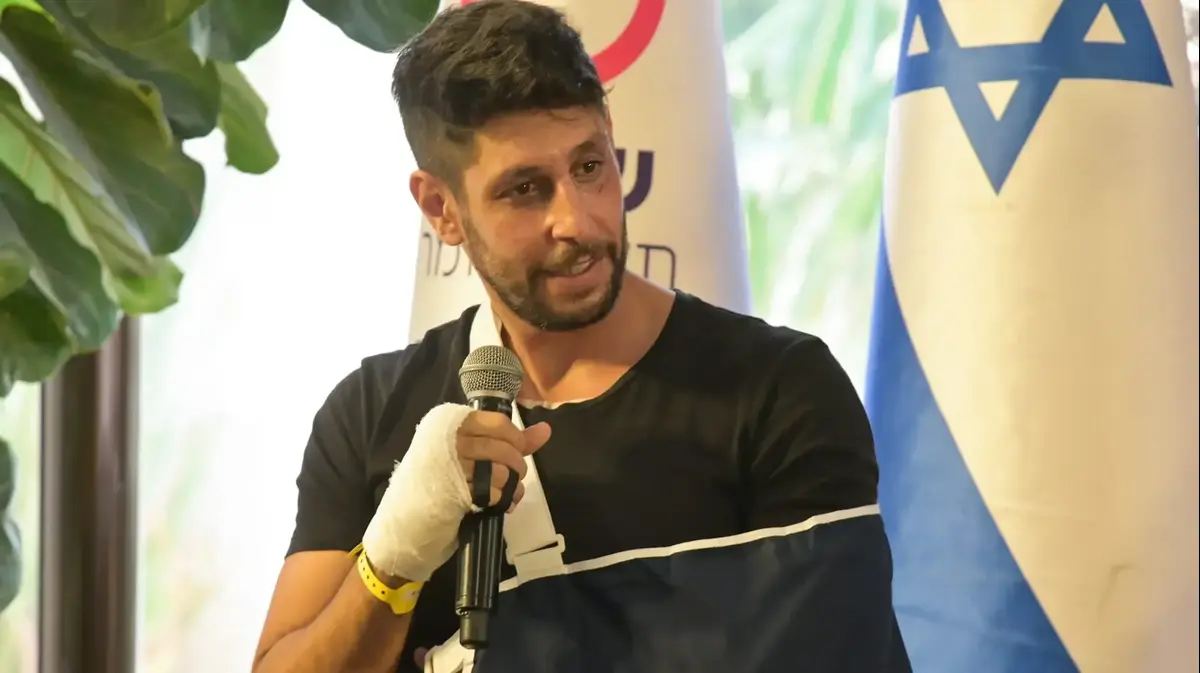Back from the underworld: the victims of trafficking who paid with their body and soul are trying to heal the tears
The corona virus diverted the attention of the government ministries from the trade problem to the enforcement of the restrictions - and the borders remained breached for the importation of human beings for prostitution and coercion.
Citizens who came to Israel to work legally also encountered people who threatened their lives.
Now, they are restarting them in shelters.
"I thought I was coming to take care of the old lady"
Merav Cohen
07/23/2022
Saturday, July 23, 2022, 12:04 p.m. Updated: 1:42 p.m.
Share on Facebook
Share on WhatsApp
Share on Twitter
Share by email
Share in general
Comments
Comments
On video: A victim of human trafficking shares her personal story in an interview with a Walla!
Merav Cohen (Photo: Niv Aharonson)
One of the severe damages of the corona crisis is Israel's drop to the second rank out of four in the index of countries that do not make sufficient efforts to eradicate human trafficking in their territory, according to the annual UN report on the subject. , especially the police and the Immigration Authority, who were busy guarding the borders in a different way and the main attention was directed to enforcing the Corona restrictions.
According to the ministry's data, about a thousand victims of trafficking and slavery enter Israel every year, and since the beginning of the war between Ukraine and Russia, attempts at trafficking have increased, and only in the last four months has their entry been halted of 52 women who came from Ukraine for the purposes of prostitution and trafficking.
The Ministry of Social Affairs in cooperation with the Keshet Association operate three special shelters for victims of trafficking - for men, women and families with children.
Each shelter has up to 30 patients, who come and go there after being identified as victims of trafficking by the police.
"There are a number of field officials whose job it is to locate the problem and refer it to the police. We need evidence that trafficking is taking place, based on the criteria of the Penal Code," explains Yasmin Confino, director of the shelters.
All shelters are confidential and guarded with attached security guards.
One of the sponsors at the shelter (Photo: Niv Aharonson)
"Admission to the shelter is voluntary and only if the applicant requests," Confino adds.
"For our part, we will not put pressure on the patients to complain about those who hurt the police and our treatment is not related to testimony, so for example if someone wants to return to the country of origin and not complain - we will help her. If they do complain, the patients stay here until an indictment is filed."
In the gender distribution of the harm, we find that the men come to Israel as a result of slavery, or educated students who came to Israel to study agriculture and were forcibly taken to work in the fields.
The women come to Israel for the purpose of working in prostitution or as "commissioned brides".
That is, the woman comes to Israel to marry but is held in humiliating slavery conditions, without contact with her family or relatives and is obliged to have sex according to the man's commandments.
This woman does not have an independent bank account and is completely dependent on her husband.
All of them come after experiencing threats, humiliation, limited rest hours, prevention in medicine and having their personal documents taken from them.
Differences are also seen in the recovery process, when women feel that first of all they need to regain control over their lives, so some of them are not in a hurry to enter the labor market again, but want to decide and choose what they will work on from the options that have not been given to them so far.
In contrast, the men prefer to go to work as soon as possible and return to their normal lives.
In addition, the women manage to talk more about the mental distress and trauma they went through, it is more difficult for the men and they repress.
Confino describes the difficult cases that came to the hostel: "There are women who know they are coming to Israel to work in prostitution, but they do not understand that they are also victims of trafficking and at first do not understand the problem at all. These are not necessarily weakened women, but rather the strong women in the family who are sent to bring money to the family and then that Deteriorates. Even if they knew they would end up in prostitution, in the end they get 25 clients a day and use drugs and alcohol to survive the job. Many women come to cleaning companies and go through an 'initiation ceremony' when the owner of the company raped them at the reception."
More in Walla!
Establishing shelters, increasing legal standards: the Treasury's plan to combat violence against women
To the full article
More in Walla!
Israel has dropped in the ranking of the fight against human trafficking: "does not meet the minimum standard"
Elam Association against senior officials of the Ministry of Social Affairs: They deliberately acted against us in the tender for the treatment of young people in prostitution
Leaving the baldness behind - this is how hair transplantation is done without risk
Patients do not understand the danger of revealing the place of refuge.
Confino (Photo: Niv Aharonson)
The patients arrive at the shelters with the feeling of survival from hell, and the therapists try to create a respectful lifestyle for them as well.
Not only to live and work, but also leisure and cultural happiness.
It is impossible not to notice the power relations in the hostel, a man or woman who has undergone such abuse becomes aggressive in front of other people or returns to being exploited.
The victims come from a world of power relations and exploitation of the weak by the strong, and sometimes reproduce this experience even in the shelter in all systems of their relationships, both with other patients and with staff members.
The therapists also teach them to communicate in a healthy way as equals between equals, and not just in an exploitative or exploited manner.
One of the difficult tasks of the hostel staff is to bridge languages and cultures, since the patients come from 10 countries around the world.
For this purpose, team members who speak languages, there are old or new immigrants and try to find staff members who will speak with them in the original language.
The residents' assembly is held in six languages at the same time, including sign language.
In the shelter they try to let them cook the foods they know from home and take them to spice shops that are only available in their countries of origin.
All shelters are confidential and guarded with close security guards after several cases of assaults: "Once in a while a dealer or a pimp comes and the security guard reports to the police. A few weeks ago a gang leader came to lure people back to them. The patients do not understand the danger of exposing the shelter and sometimes the criminals come here to take revenge on them Because we complained," says Confino painfully.
Miri Moskovitz, manager of the field of treatment for populations in the continuum of prostitution and victims of trafficking and slavery at the Ministry of Welfare, claims that the state is doing everything it can to prevent prostitution and trafficking, following the treaty signed by the State of Israel.
"The service we provide integrates government ministries - welfare, internal security, law and interior," she says.
"In recent years, it has been difficult to work regularly on areas between ministries, which is why we see the drop in the rating, but these shelters are another service that we provide to the victims of trafficking to get out of the difficult reality they have fallen into. We have a lot to do to reduce trafficking and slavery in Israel, but it is important Remember that despite the drop in Israel's ranking, it is not among the countries hit by human trafficking."
"We have a lot to do to reduce the trade and slavery in Israel."
One of the Ministry of Welfare's shelters (Photo: Niv Aharonson)
In the women's hostel we meet K., a beautiful young woman from South America, who painfully recounts the difficult experiences she went through in Israel.
"I thought I was coming to Israel to help an old woman," she shares.
"I've never been abroad, so I didn't know that I needed to arrange the visa in my country.
I got here and really started to take care of the old lady, but her family didn't take care of my visa.
They didn't give me a salary and didn't let me get medical treatment, so I was completely dependent on them - I had nothing." Later on K.'s situation got worse. "They offered me to marry their son.
I said yes because I had no choice.
I didn't even have money for the bus to get out of there.
The work was not difficult and that is also what I expected, but the conditions were very difficult."
The way out of the abusive family began with the older woman's brother.
"The brother of the lady I took care of contacted a third person who also went through what I went through. And he asked him how he managed to get out of this family, which trafficked people several times. Finally, he was the one who reported to the police."
"My brother told me that the police would come to rescue me and he also told me when. It was late in the evening, I hid in the room and acted as if I didn't know anything. I heard the knocking on the door and my whole body shook. The owner of the house opened the door for them and the policeman asked to see me and the owner of the house did As if he doesn't know me."
Fortunately for K. the police did not give up and asked to enter the house and check who was there, but the family did not agree and the police did not have a search warrant.
"Suddenly, a policeman came who spoke in Spanish and called my name from outside the house, I mustered up my courage, left the room and ran to him," K. continues.
"From there they took me to a police station, I filed a complaint and told them that I have proof of how many people have gone through this in this family. It's unbelievable how quickly my strength returned to me to stand up to the family that hurt me."
In the men's hostel the shame is much greater.
One of the Ministry of Welfare's shelters (Photo: Niv Aharonson)
K. has a complex relationship with the family that trafficked her.
"On the one hand they made me feel like a member of the family, on the other hand they cheated me and really played me. I was very angry. I became attached to this family, especially to the elderly woman I took care of, because I was there for almost a year, but I don't understand how they don't have an iota of compassion."
Unfortunately, the police closed the case against the family due to lack of evidence, and K. is angry about the decision.
"I don't understand how it happened. No one talked to me or my lawyer, except the night I was rescued - it's hard and frustrating.
The next step for me is to go home, but the bureaucracy is not over yet, so I'm staying here in the hostel - right now it's home."
In the men's hostel, the atmosphere is completely different, the shame is much greater, especially victims who are tortured in the camps in Sinai. The patients experience humiliation because they supposedly have to defend themselves , unlike women who are weaker. Their feeling that they managed to take everything from them and without having the ability to stop it, is an extremely difficult feeling.
L., a silver-haired man from Asia, married and father of a child, says that he heard about the possibility of working in construction in Israel and earning a high salary.
"The financial situation at home was difficult, so the family supported this move, despite the difficulty. In 2019 I came to Israel and started working in Jerusalem in construction. The landlord took my passport, bank card and health insurance card from me because he said that with their help I needed to get a work permit. He did not give me back them and I was under his sole control. In the evening he took me to the dormitory, where I lived together with about 40 colleagues in a small and crowded building. Every evening, after dinner at 6:00 p.m., the employer's employees would lock the door of the residence and so we could not enter or leave Independent".
"I realized something was wrong when I asked to make an appointment with a dentist and the owner of the house did not agree," he recalls.
"I started making a mess in the dormitory and the owner of course got angry. She fired me and threw me out of the dormitory without money, food, a place to sleep. I don't know anyone here except him."
The experiences after being thrown on the street were difficult for L. and he prefers not to expand on them.
"In the end I got to the hostel and here I am protected, I don't know what is happening with my other friends in the dorm, I hope they are okay."
news
News in Israel
Society and welfare
Tags
A shelter for women
slavery
Human trafficking
prostitution

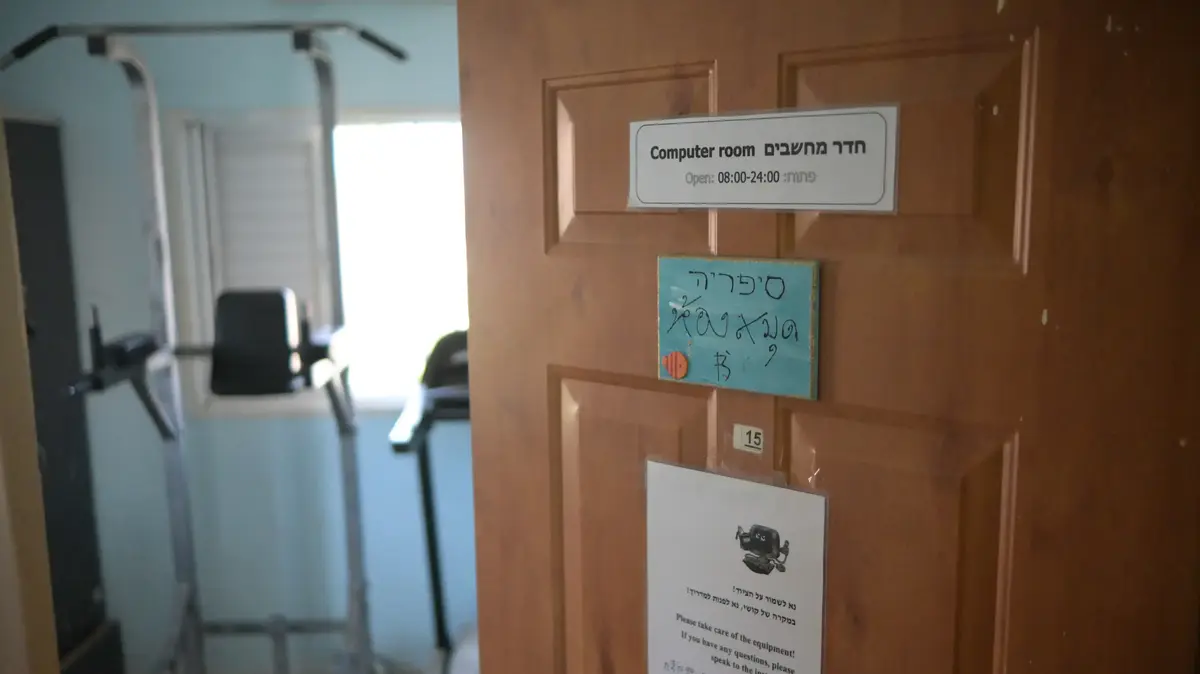
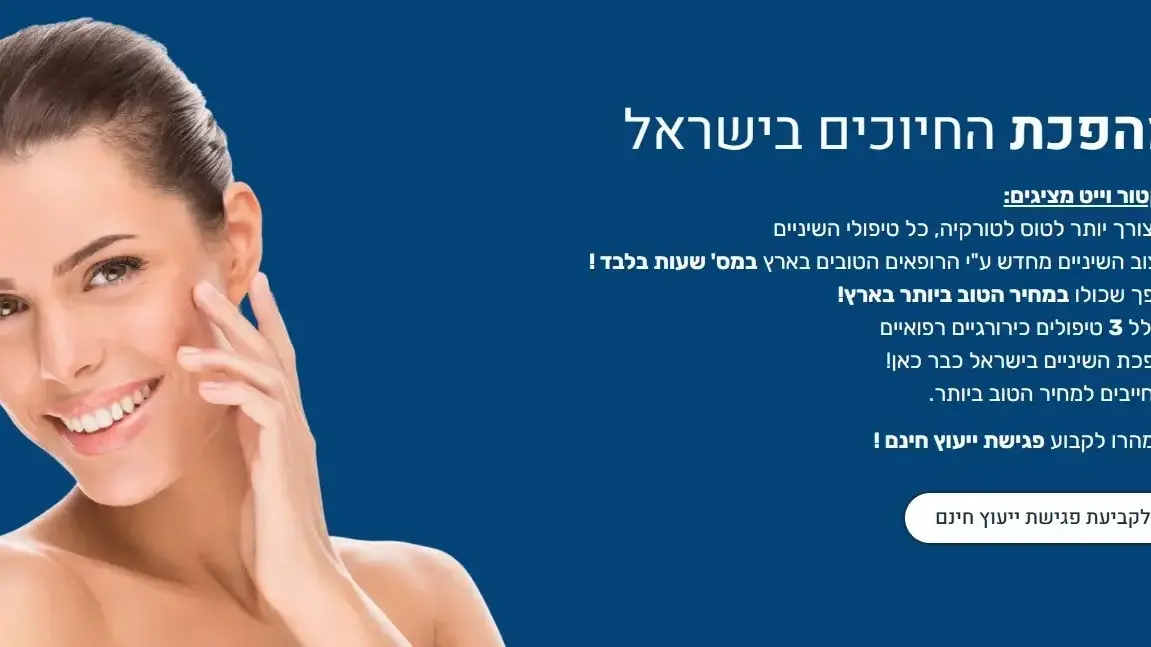
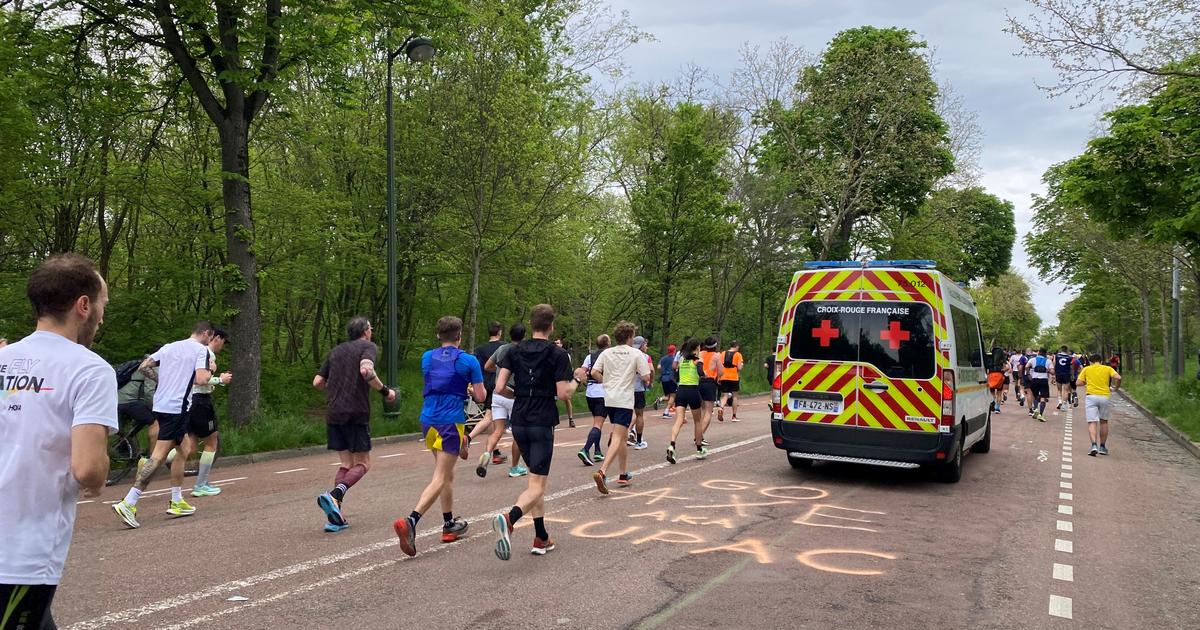


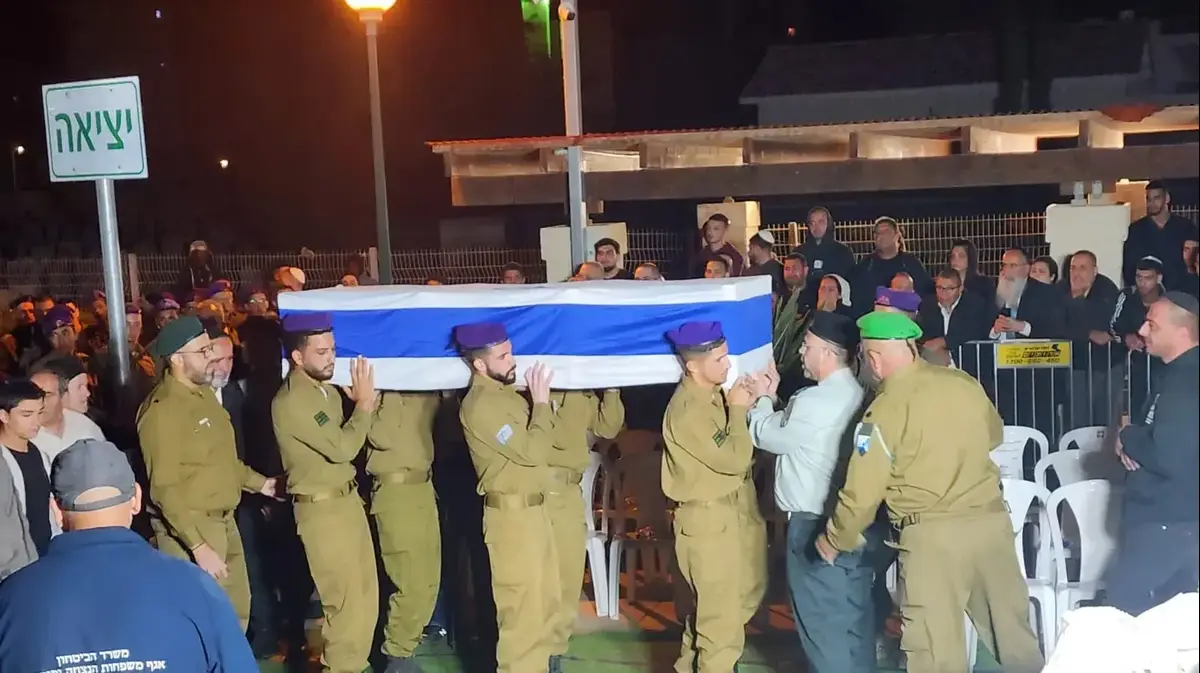

/cloudfront-eu-central-1.images.arcpublishing.com/prisa/SDTMPFPAFVH3RFLOVOYNWMW4VU.jpg)
